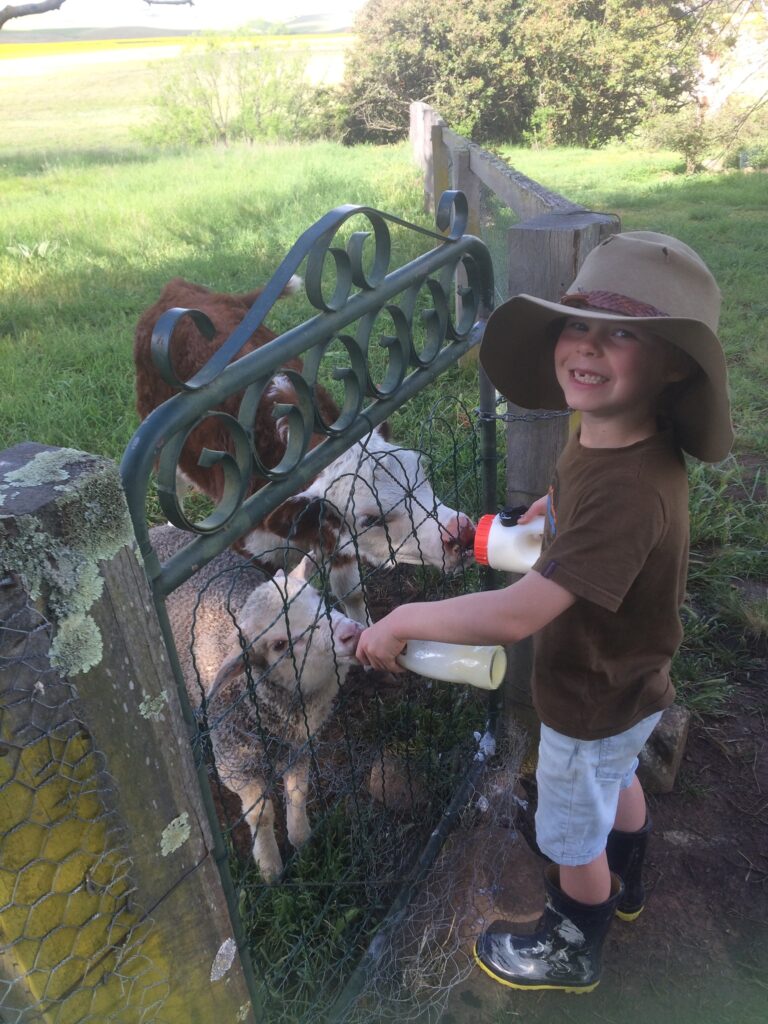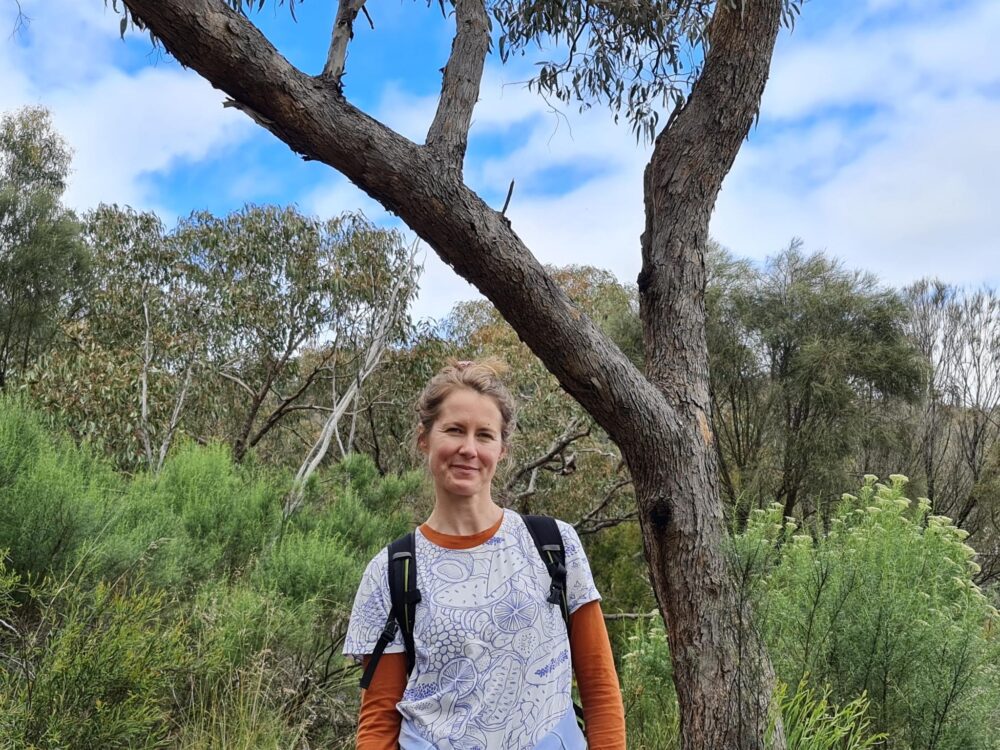After two long years of the global COVID-19 pandemic, so many of us find ourselves tired and lacking energy for even basic tasks. Facing a new year does not fill us with the joy of possibility as it may once have done. Where, then, do we find hope?
In this uplifting summer series, Ginger Gorman talks to six extraordinary women about how they found hope in unexpected places. This series was first written for HerCanberra and is republished here with full permission. (OK we know it’s not still summer, but we’re sticking with the original headline!)
Harriet, 39, grew up on a sheep and cattle station outside Bombala, in far southern New South Wales, and the effects of the drought she lived through as a child imprinted themselves on her soul.
“We had very low rainfall all throughout the 90s—from 1991 until 1999 and then the Millennium drought hit. So, it was dry for pretty much all of my formative years.”
“I was constantly looking at the impact it has on the landscape, the complete drying up of waterways and the dust,” she says.
“It was an anxious time, just getting through each day of loading up the trailer to feed stock to keep them alive and taking on debt to buy more feed,” she recalls, “…my parents are very determined but, of course, drought takes a toll on all families.”
Harriet says that as a child she didn’t understand the relentless drought as climate change. However, her parents did teach her a love of nature and she imbibed the social and ecological impacts of the changing weather.
Looking back now, she says those experiences set her on a path for life: “After I graduated from my masters, I worked for 10 years in corporate energy and climate consulting. I was working with big carbon-intensive companies to try and drive improved outcomes on climate.”
But in the end, Harriet found this wasn’t enough: “When I was a consultant, I was limited in what I could do and say, due to the client base. And then when I was working in renewable energy with a government entity [and] I was limited based on who funded the program.”
She says the urgency to act comes from both her own childhood experiences, but also being a parent of two young children herself: “My first child was born in 2014. He’ll be 36 in 2050. We all talk about net zero [carbon emissions] by 2050 as this far off thing.”
“But he’ll be younger than I am now at that time. This is absolutely the dominant story and influence in our children’s lives.”

Harriet’s son feeding poddies in much better times. Picture: Supplied
Thinking back to the terrible summer Canberra and so much of the country experienced in 2020, Harriet says whilst the fires were horrifying in their scale and destruction, she was also haunted by the preceding drought and the animals “…coming closer and closer into Canberra looking for food [and] looking for water. I found it very unsettling.”
“At the time I was not working in a role where I felt I could address my climate anxiety and I had nowhere to put it…I was feeling pretty lost.”

Harriet’s father feeding stock during the Black Summer fires. Picture: Supplied
After seeking the help of coach Liz Tilley, who happened to have firsthand experience of losing her home in the fires of 2003, Harriet realised she didn’t have to be an activist in her spare time—she could do it as a job.
Now she’s Climate Lead Australia at the Australasian Centre for Corporate Responsibility.
Harriet explains her job like this: “Our key focus is on the biggest emitting companies in Australia that are listed on the stock exchange.”
“We file shareholder resolutions at the AGMs of these companies, and we engage with their big investors to push them to align their climate change commitments with the science. That’s our primary goal.”
“Before I joined the climate movement as an activist, hope was harder to find. For me, action really is the antidote to despair,” she continues. “I’m in this space where I can work on something that is completely true to me and my values.
“I do feel for a lot of people in Canberra in the APS [public service] who are limited due to what is required of public servants—to not take public positions on issues. It just seems crazy that that is the case for something so existential as climate change…an issue that poses such a direct threat to our children.”

Harriet and her children. Picture: Supplied
In all this, I ask Harriet how she holds onto hope, given that the scientific consensus is that the planet is warming, and a “code red” has been issued for the planet.
She says: “I don’t assume it’s a fait accompli yet. There are still choices in front of us [although] I admit the window is rapidly closing.”
Harriet says that now she has taken “a seat at the table in the climate movement,” it’s clear to her that the fossil fuel industry is facing huge and unrelenting headwinds.
“It’s why they are so desperate to extract public money to prop up their business model. This industry is in its last chapter. I do feel like [the fossil fuel companies’] social licence and power is finite, and the end of that is not as far away as we might think,” she says, “That’s the other source of hope.”

Harriet’s children. Picture: Supplied
Feature image at top: Supplied
- This article first appeared on HerCanberra. Read the original here.
BroadAgenda is a proud partner of HerCanberra. Everything you need to know about Canberra, one destination.

Ginger Gorman is a fearless and multi award-winning social justice journalist and feminist. Ginger’s bestselling book, Troll Hunting,came out in 2019. Since then, she’s been in demand both nationally and globally as an expert on cyberhate and the real-life harm predator trolling can do. She's also the editor of BroadAgenda and gender editor at HerCanberra. Ginger hosts the popular "Seriously Social" podcast for the Academy of the Social Sciences in Australia. Follow her on Twitter.





